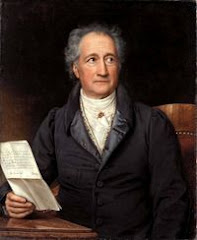Names like “Rousseau” and “Voltaire” recall the nearly frantic intellectual spirit that defined the Enlightenment. These thinkers worked to turn the aristocracy on its head, preaching a progressive shift towards equality and the dissemination of ever more radical political tenets. In France, it became fashionable for the bourgeoisie to hold debates in the storied Parisian salons, where some of the 18th century’s greatest minds collaborated to form those the political, social and economic doctrines that are to this day an integral part of society; however, one can’t help but perceive this salon culture as reminiscent of the same highbrow practices of the knights in the High Middle Ages. In this sense, the term “bourgeoisie” can be quite misleading. Just like the knights, the bourgeoisie isolated themselves from the lower classes by confining themselves to private, intellectual circles and subsequently professing the need to protect—or in this case “to enlighten”—those not fortunate enough to have come into a sufficient birthright. This self-imposed elitism is, arguably, the reason for the failure of the French Revolution. The intermediate governments that came to power were no more interested in the welfare of the poor than the monarchy, with many political uprisings turning into horrific bloodbaths. Because of the misguided efforts of the “elite” bourgeoisie, the French leadership degenerated into one of the most frightening imperial empires ever seen. The poor farmers and factory workers welcomed the coming of Napoleon with open arms, eager for something absolute to fill the void left by the Revolution.
In principle, the concepts that were developed in the Enlightenment period were inherently good. Locke’s treatises provided a successful grounding for the liberal sentiments put forth by the Americans in the Declaration of Independence, giving birth to a revolution that France could only admire. It must be recognized, however, that the American Revolution was the product of high tension between an empire and its colony. In America’s case, there existed a stark political dichotomy that treaded the line between the imperial power and the revolutionaries (granted, there were those Loyalists in America whose deference to the crown earned them not a few privileges), whereas in France the revolution was muddled by conflicting interests. Still, early America was not without its share of elitism and strife. The First and Second Continental Congresses took it upon themselves to fight America’s battles with the interests of rich, white males in mind. Those same men who professed the enlightened ideal of liberté ignored the equally important égalité, inciting an anger among the poor farmers that culminated in Shay’s Rebellion in 1786, three years before the onset of the French Revolution. Equally striking is the comparison that can easily be made between some of the American slave owners—many of whom are considered America’s “founding fathers”—and the feudal, European nobility.
Even with all the radical political ideals put forth during the Enlightenment, the era was still plagued by the same problems that had impeded the advancement of European society for centuries. Ultimately, this highlights a simple human trait—a resistance to change. Countless examples could be drawn up to illustrate this, but the Enlightenment, more than any other time period, does it best. Truly, the purest tenets of the Enlightenment were not fully implemented until the mid-19th century, when Europe experienced a socialist upheaval and slavery in America was finally abolished.
Dan Breckenridge
Thursday, February 28, 2008
Subscribe to:
Post Comments (Atom)







.jpeg)


No comments:
Post a Comment